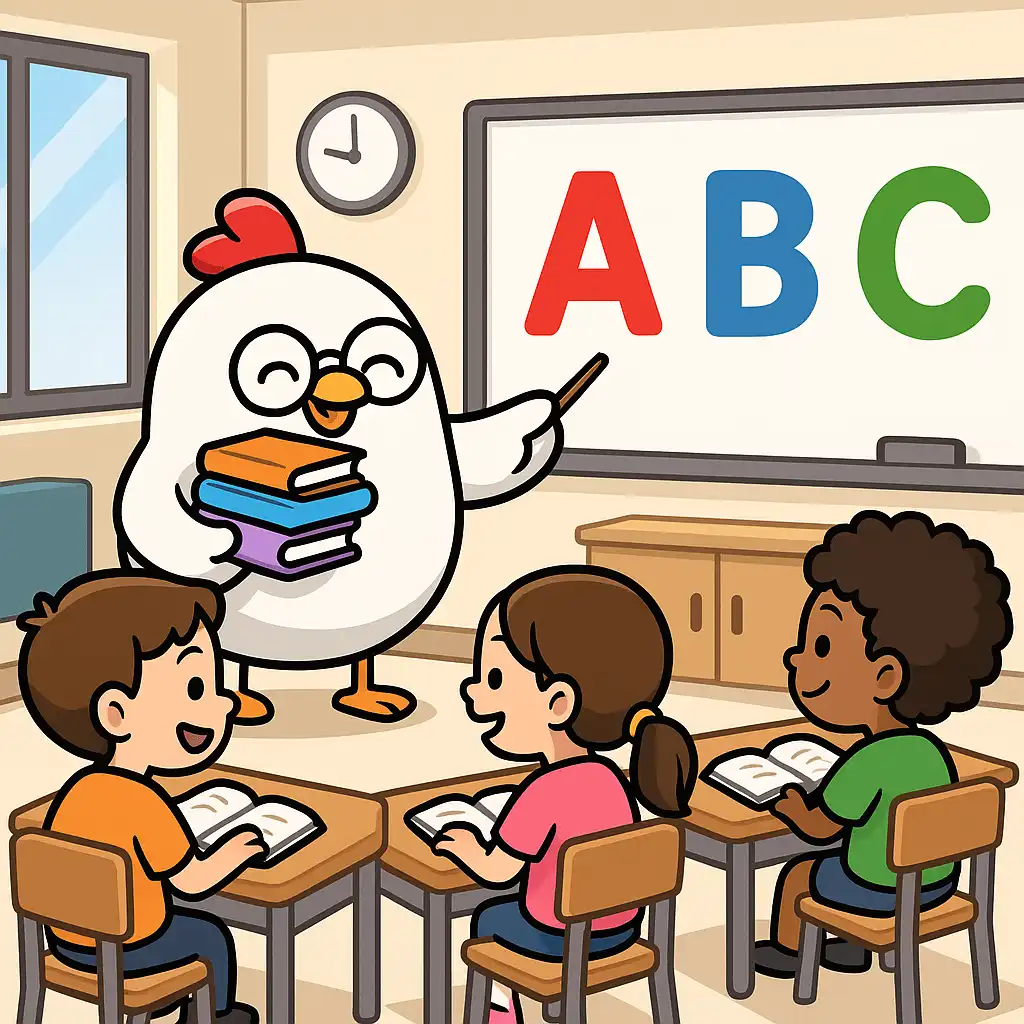Cracking the Code: Mastering the /k/ Sound with C and K
Your child is now a confident sound-blender, but a new, exciting challenge awaits: two different letters that make the exact same sound! The letters 'c' and 'k' both make the crisp /k/ sound, and learning when to use each one is like becoming a reading detective.
This is a thrilling new step in their journey. They are moving beyond just learning sounds to understanding the rules of reading. In just 10 minutes a day, our program turns this phonics puzzle into a fun, intuitive game, empowering your child with the knowledge to read and spell a whole new category of words.
Our Approach: Turning a Tricky Rule into a Fun Game
Instead of confusing your child with complex explanations, we make learning the c/k rule a simple and rewarding experience.
- We Teach a Simple, Reliable Pattern: Our games are designed to help your child intuitively discover one of the most dependable rules in phonics. By repeatedly engaging with words that follow the c/k pattern, they will naturally absorb which vowel follows each letter.
- Building Visual Memory: Through repetition in a fun, game-based environment, your child will start to see that words like
cat,cop, andcublook right with a 'c', while words likekidandkitlook right with a 'k'. This builds the visual memory that leads to effortless reading and spelling. - Empowering Them as Problem-Solvers: This lesson is a huge confidence booster. When a child learns their first major spelling rule, it proves to them that reading isn't random; it's a code that they can crack. This builds their identity as a capable, clever learner.
The New Words Your Child Will Master
By understanding the c/k rule, your child will confidently read and understand a huge list of new words. They will feel like a phonics expert as they master words in our games, such as:
- cat, cap, cot, cub
- kid, kit, kiss
- cab, can, cop, cuff
Mastering this rule opens up a vast number of the most common words in English.
Expert Answers to Your Questions About the C/K Rule
1. Is there a simple rule for when to use 'c' versus 'k'?
Yes, there is! It's one of the most famous rules in phonics, often called the "Cat/Kite" rule. Here it is: 'C' takes the vowels 'a', 'o', and 'u' (as in cat, cot, cut). 'K' takes the vowels 'i' and 'e' (as in kit, keg). Our games are built around this very rule to make it easy for your child to absorb naturally through play.
2. Why do two different letters make the same sound? It seems confusing. It's a great question that shows how complex our language is! It's mostly due to history. The 'c' sound came from Latin, and the 'k' sound came from Greek and other Germanic languages. English borrowed words from all of them, so we ended up with both letters. The app helps your child master the English rule for using them correctly.
3. But what about words like 'city' or 'cent'? When will my child learn that 'c' can make an /s/ sound? You are already thinking like a phonics expert! That's called the "soft c" sound, and it is a more advanced rule your child will learn later in our program, after they have completely mastered this foundational "hard c" sound. We teach one concept at a time to ensure your child builds a strong, confusion-free understanding of reading.
4. What about the 'ck' at the end of words like 'duck'? Another excellent question! That's the next step after this lesson. The 'ck' spelling is typically used for the /k/ sound at the end of a word right after a short vowel. Our curriculum follows this logical progression, and your child will encounter games designed to teach that specific rule very soon.
Your Child is Becoming a Phonics Detective!
Learning this rule is a major step towards becoming a truly independent reader and speller. Let's celebrate this new level of learning and continue to build their skills and confidence.
